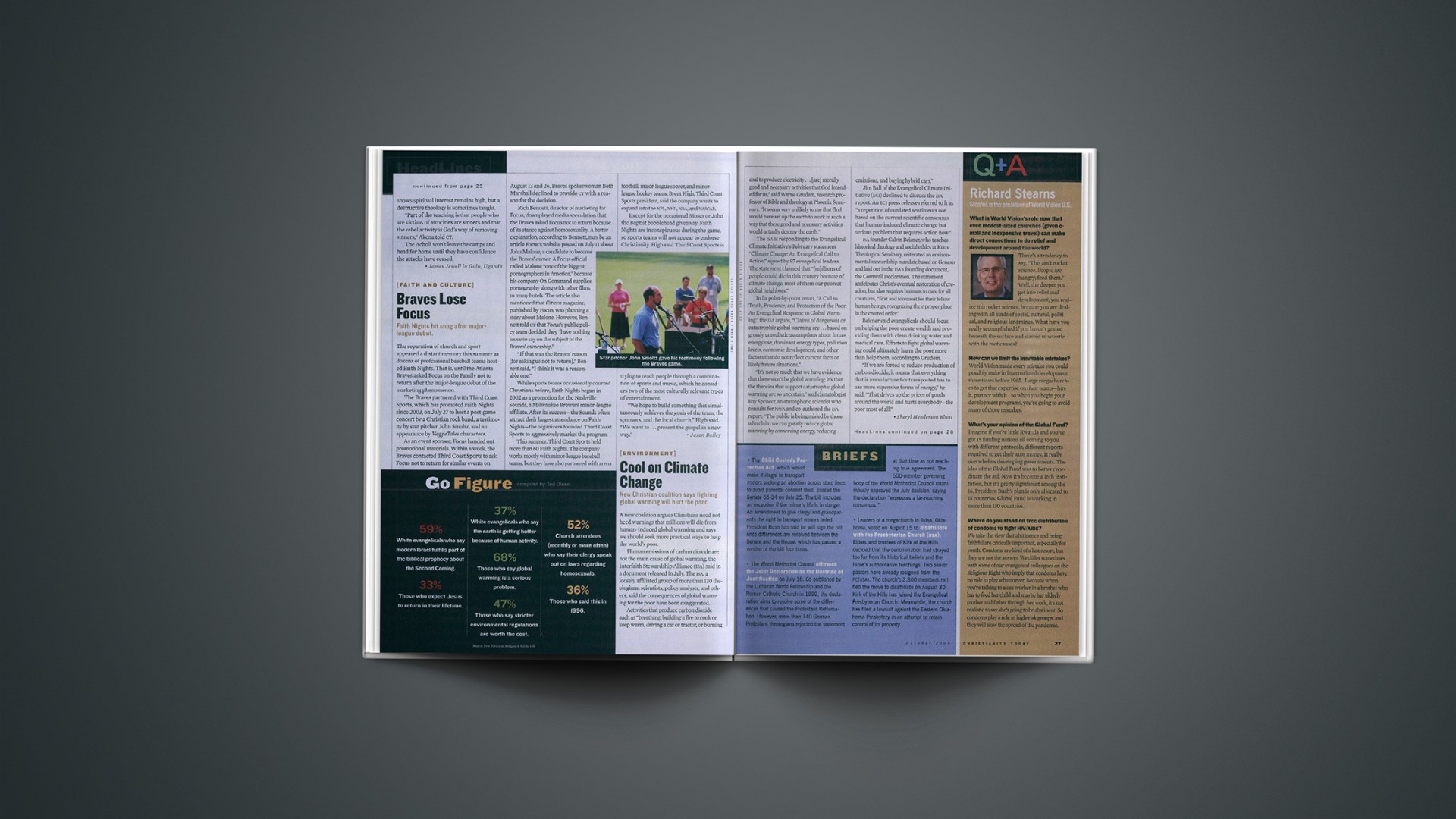With a tenuous truce in place between the Ugandan government and the Lord’s Resistance Army (LRA), the Acholi people of northern Uganda pray for lasting peace and for hope. Church leaders are also praying for discernment as they ponder the consequences of the Ugandan government’s decision to offer amnesty to LRA leader Joseph Kony.
Over the last 20 years, spasms of LRA violence have followed at least seven unsuccessful attempts by the government to secure peace with the rebels. During that time, at least 1.6 million Acholi have been displaced.
Last year, the Ugandan government offered amnesty to child soldiers, who compose 90 percent of the rebel force. The LRA enslaves them after kidnapping them from their families. Peace talks culminated in a cease-fire agreement on August 26. Terms of the truce include amnesty for Kony and other senior rebel commanders in return for abandoning the fight. The International Criminal Court has indicted five rebel leaders, including Kony, for crimes against humanity and war crimes. On Tuesday, the International Criminal Court’s chief prosecutor again called for LRA leaders’ arrests.
Some church leaders have criticized the Ugandan government’s willingness to buy peace at the expense of justice.
“The amnesty is not right for Kony and the commanders,” said one Acholi lay leader now in Kampala, Uganda’s capital. “They are international criminals who the United Nations should apprehend in Congo, where the LRA has set up their camps.”
Still, others note the amnesty offer accords with the traditional Acholi heart for forgiveness.
“We want them to return home and live a normal life like everybody else,” said the Rev. Willy Akena, information officer for the Anglican diocese of northern Uganda in Gulu. “It would also be a testimony to those in the communities to know about reconciliation, and I believe many people will be changed, as we expect that upon their return, they will publicly denounce their previous atrocities.”
Meanwhile, most villages remain empty, the land dotted with the graves of more than 12,000 friends and family members killed by the LRA. Violence has forced most of the people who live in rural villages to move to one of 60 protected internal displacement camps. The church faces an enormous challenge. Anglican, Catholic, Baptist, and Pentecostal churches dot nearly every community in this predominantly Christian nation.
The violence has shattered village life. Pastors scramble to gather new congregations in or near the camps. The growing influence of small, nonaffiliated churches shows spiritual interest remains high, but a destructive theology is sometimes taught.
“Part of the teaching is that people who are victims of atrocities are sinners and that the rebel activity is God’s way of removing sinners,” Akena told CT.
The Acholi won’t leave the camps and head for home until they have confidence the attacks have ceased.
Copyright © 2006 Christianity Today. Click for reprint information.
Related Elsewhere:
Christianity Today‘s past articles on this subject include a January 2006 cover story on the Lord’s Resistance Army. See our full coverage areas on Uganda and the LRA.
Recent news coverage of the Uganda includes:
LRA warrants to stay, says ICC (New Vision, Kampala, Uganda, Sept. 26)
ICC says Uganda crimes may go on without arrests (Reuters, Sept. 26)
Ugandan army vows immediate attacks on LRA if peace talks fail (AFP, Sept. 25)
Ugandan rebels threaten to quit talks (Reuters, Sept. 23)
LRA’s decision time (Editorial, New Vision, Sept. 25)










